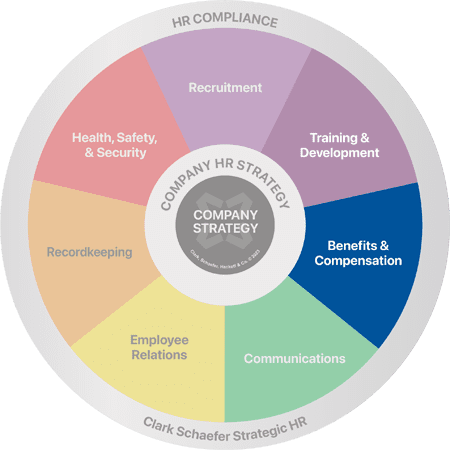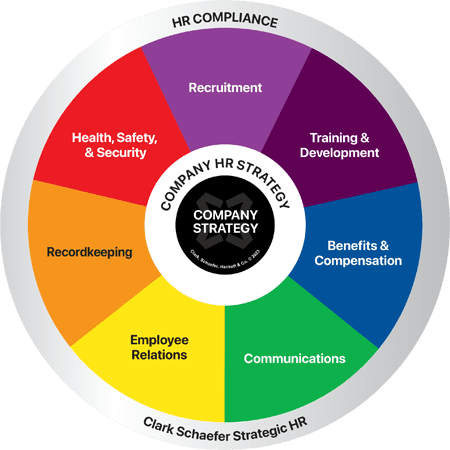Posts
How to Handle Bed Bugs at Work
Last Updatedin Health, Safety & Security Question of the Week
FMLA Expiration and COBRA
Last Updatedin Benefits & Compensation, HR Compliance Question of the Week
Return To Work / Fit for Duty
Last Updatedin HR Compliance Question of the Week
Impact Of Miscarriage On Leave
Last Updatedin Employee Relations, HR Compliance Question of the Week
Contact Us
Clark Schaefer Strategic HR
10856 Reed Hartman Hwy
Suite 225
Cincinnati, OH 45242

Clark Schaefer Strategic HR is recognized by SHRM to offer Professional Development Credits (PDCs) for SHRM-CP® or SHRM-SCP® recertification activities.
The information provided on this website does not, and is not intended to, constitute legal advice; instead, all information, content, and materials available on this site are for general informational purposes only. Readers of this website should contact their attorney to obtain advice about their particular situation and relevant jurisdiction. This website contains links to other third-party websites. These links are only for the convenience of the reader, user or browser; Strategic HR does not recommend or endorse the contents of the third-party sites.





